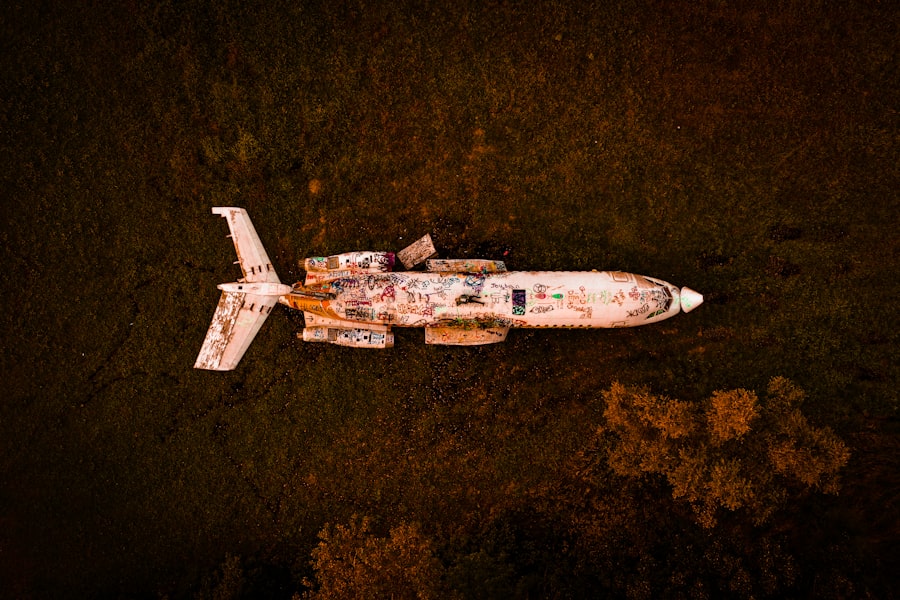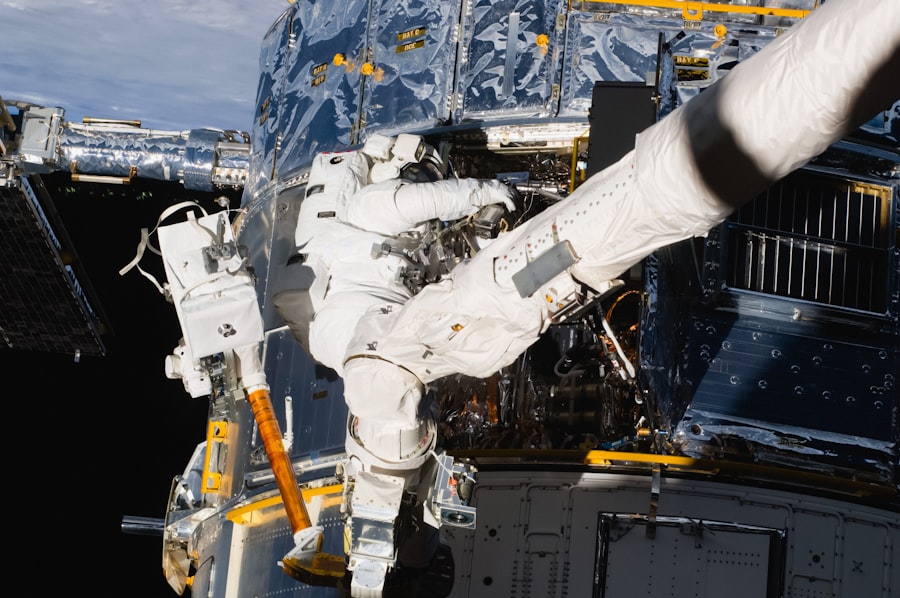The concept of a space arms race has emerged as a significant concern in contemporary geopolitics, reflecting the growing militarization of outer space. As nations increasingly recognize the strategic advantages that space capabilities confer, the competition to develop and deploy advanced technologies has intensified. This race is not merely about achieving technological superiority; it encompasses national security, economic interests, and the quest for global influence.
The implications of this arms race extend beyond national borders, posing risks to international stability and peace. As countries invest heavily in their space programs, the potential for conflict in this new frontier becomes more pronounced. The militarization of space raises critical questions about the future of international relations and the preservation of peace.
With satellites playing a crucial role in communication, navigation, and surveillance, the stakes are high. The need for a comprehensive understanding of the dynamics at play in the space arms race is essential for fostering dialogue and cooperation among nations.
Key Takeaways
- The space arms race is a growing concern with potential global security implications.
- Historical context shows that space weaponization has been a topic of interest for decades.
- Current challenges and risks of space weaponization include the potential for conflict and the creation of space debris.
- International cooperation in space is crucial for preventing an arms race and ensuring peaceful use of outer space.
- Existing international agreements and treaties provide a framework for regulating space weaponization.
Historical Context of Space Weaponization
The historical roots of space weaponization can be traced back to the Cold War era when the United States and the Soviet Union engaged in a fierce competition for technological supremacy. The launch of Sputnik in 1957 marked the beginning of the space age, igniting a race not only for exploration but also for military dominance. Both superpowers recognized that control over space could provide a strategic advantage on Earth, leading to the development of various military applications, including reconnaissance satellites and missile defense systems.
As the Cold War progressed, the concept of space as a battleground became more pronounced. The deployment of anti-satellite weapons and the establishment of military branches focused on space operations underscored the seriousness with which nations approached this new domain. The 1980s saw initiatives like the Strategic Defense Initiative, which aimed to create a missile defense system utilizing space-based technologies.
This historical context highlights how early efforts to weaponize space laid the groundwork for contemporary challenges and concerns regarding security and stability in outer space.
Current Challenges and Risks of Space Weaponization

In today’s geopolitical landscape, the challenges associated with space weaponization are multifaceted and complex. One of the most pressing issues is the increasing number of countries developing their own military capabilities in space. Nations such as China, Russia, and India have made significant strides in their space programs, leading to concerns about an arms race that could escalate tensions among global powers.
The potential for miscalculation or misunderstanding in this high-stakes environment poses a significant risk to international security. Moreover, the proliferation of space debris resulting from anti-satellite tests and other military activities presents a tangible threat to both civilian and military satellites. As more countries engage in space operations, the likelihood of collisions increases, potentially leading to catastrophic consequences for critical infrastructure on Earth.
The challenge of managing this debris and ensuring safe operations in space underscores the urgent need for international cooperation and regulatory frameworks to mitigate risks associated with weaponization.
Importance of International Cooperation in Space
| Metrics | Data |
|---|---|
| Number of countries involved in space missions | Over 70 countries |
| International space treaties signed | 5 major treaties |
| International space agencies collaborating | NASA, ESA, Roscosmos, CNSA, ISRO, etc. |
| Investment in international space projects | Billions of dollars |
| Number of joint space missions | Dozens of missions |
International cooperation is paramount in addressing the challenges posed by space weaponization. The complexities of outer space transcend national borders, necessitating collaborative efforts to establish norms and regulations that promote peace and security. By working together, nations can share information, resources, and best practices to mitigate risks associated with military activities in space.
Furthermore, cooperation can foster trust among nations, reducing the likelihood of misunderstandings that could lead to conflict. Joint initiatives, such as collaborative satellite missions or shared research projects, can serve as platforms for dialogue and engagement. By prioritizing cooperation over competition, countries can create a more stable environment in which the benefits of space exploration can be realized without the looming threat of militarization.
Existing International Agreements and Treaties on Space Weaponization
Several international agreements and treaties have been established to address issues related to space weaponization. The Outer Space Treaty of 1967 remains a cornerstone of international space law, emphasizing that outer space should be used for peaceful purposes and prohibiting the placement of nuclear weapons in orbit. This treaty laid the foundation for subsequent agreements aimed at promoting responsible behavior in space.
In addition to the Outer Space Treaty, other frameworks such as the Registration Convention and the Liability Convention provide mechanisms for accountability and transparency in space activities. However, despite these existing agreements, enforcement remains a challenge, as there is no comprehensive regulatory body overseeing military activities in outer space. The effectiveness of these treaties hinges on the commitment of nations to uphold their principles and engage in constructive dialogue to address emerging threats.
Potential Solutions for Preventing Space Arms Race

To prevent an escalation in the space arms race, several potential solutions can be explored. One approach involves establishing a binding international treaty specifically focused on preventing the weaponization of outer space. Such a treaty could outline clear definitions of prohibited activities and establish verification mechanisms to ensure compliance among signatory nations.
Another solution lies in promoting confidence-building measures among countries with advanced space capabilities. Initiatives such as information-sharing agreements or joint exercises can help build trust and reduce suspicions regarding military intentions. By fostering an environment of transparency, nations can work towards de-escalating tensions and creating a more cooperative atmosphere in which peaceful uses of space can flourish.
Role of United Nations in Preventing Space Weaponization
The United Nations plays a crucial role in addressing issues related to space weaponization through its various agencies and forums dedicated to outer space affairs. The Committee on the Peaceful Uses of Outer Space (COPUOS) serves as a platform for member states to discuss challenges and opportunities related to space activities. By facilitating dialogue among nations, COPUOS can help build consensus on norms and regulations governing military activities in outer space.
Additionally, the UN can advocate for the establishment of new treaties aimed at preventing the weaponization of space. By leveraging its global reach and diplomatic influence, the UN can encourage member states to prioritize peaceful uses of outer space over militarization. Through initiatives that promote international cooperation and dialogue, the UN can contribute significantly to mitigating risks associated with space arms races.
Collaboration between Space Agencies and Governments
Collaboration between national space agencies and governments is essential for addressing challenges related to space weaponization effectively. By pooling resources and expertise, countries can develop joint strategies that prioritize peaceful exploration while minimizing military competition. Collaborative projects can also enhance technological advancements that benefit all nations rather than being used solely for military purposes.
Furthermore, partnerships between government entities and private sector players can drive innovation while ensuring that ethical considerations are taken into account. As commercial interests increasingly intersect with national security concerns, fostering collaboration across sectors will be vital for establishing responsible practices in space exploration and utilization.
Promoting Transparency and Confidence-Building Measures in Space
Promoting transparency is critical for building confidence among nations engaged in space activities. Establishing mechanisms for sharing information about satellite launches, military exercises, and technological developments can help alleviate fears regarding potential threats. By creating an environment where nations are open about their intentions in space, misunderstandings can be minimized, reducing the risk of conflict.
Confidence-building measures such as joint monitoring initiatives or collaborative research projects can further enhance trust among countries with advanced space capabilities. These measures not only demonstrate a commitment to peaceful uses of outer space but also provide opportunities for nations to engage constructively with one another.
The Role of Non-Governmental Organizations in Preventing Space Weaponization
Non-governmental organizations (NGOs) play an increasingly important role in advocating for responsible behavior in outer space. Through research, public awareness campaigns, and policy advocacy, NGOs can raise awareness about the risks associated with space weaponization and promote dialogue among stakeholders. Their independent perspectives can contribute valuable insights into discussions surrounding international agreements and treaties.
By engaging diverse voices in conversations about space governance, NGOs can help ensure that a wide range of perspectives is considered when developing policies aimed at preventing militarization.
Conclusion and Call to Action for International Cooperation in Space
In conclusion, the challenges posed by the ongoing space arms race necessitate urgent action from the international community. As nations continue to develop their military capabilities in outer space, it is imperative that they prioritize cooperation over competition.
The call for international cooperation is not merely an idealistic vision; it is a practical necessity for ensuring peace and stability in an increasingly complex geopolitical landscape. As humanity ventures further into outer space, it is essential that nations come together to uphold shared values and principles that prioritize peaceful exploration over militarization. Only through collective efforts can they safeguard the future of outer space as a domain for all humankind rather than a battleground for conflict.
In the quest to prevent an arms race in space, it is crucial to explore diplomatic and cooperative measures that can be implemented on a global scale. An insightful article that delves into these strategies can be found on Real Lore and Order. This piece discusses various international treaties and agreements that aim to maintain peace and prevent the militarization of outer space. For a deeper understanding of these preventive measures, you can read the full article by visiting Real Lore and Order.
WATCH THIS! 🚀 Why The Moon Is The Next Battlefield: The Geopolitics of Cislunar Space
FAQs
What is an arms race in space?
An arms race in space refers to the competition between countries to develop and deploy military capabilities in outer space, such as anti-satellite weapons, space-based missile defense systems, and other offensive and defensive space weapons.
Why is it important to prevent an arms race in space?
Preventing an arms race in space is important to maintain the peaceful use of outer space for all nations, ensure the sustainability of space activities, and prevent the escalation of tensions and conflicts into the space domain.
What are the potential consequences of an arms race in space?
An arms race in space could lead to the militarization of outer space, increased risk of space debris and collisions, heightened international tensions, and the potential for conflict to spill over into space, disrupting satellite communications and other vital space-based services.
What are some measures to prevent an arms race in space?
Measures to prevent an arms race in space include diplomatic efforts to promote international cooperation and arms control agreements, transparency and confidence-building measures, promoting norms of responsible behavior in space, and the development of multilateral space governance frameworks.
What role can international organizations play in preventing an arms race in space?
International organizations such as the United Nations, the Conference on Disarmament, and the Committee on the Peaceful Uses of Outer Space can facilitate dialogue, negotiation, and the development of international agreements to prevent an arms race in space and promote the peaceful use of outer space.
